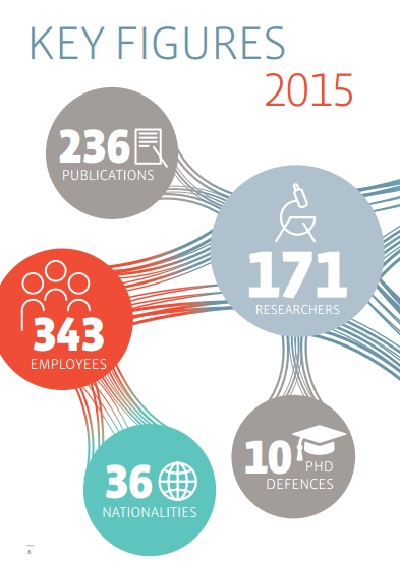
After celebrating its first year of existence as the Luxembourg Institute of Health (LIH) on 1 January 2016, the Luxembourg biomedical research centre published on Tuesday its activity report for 2015.
Since January of last year, the LIH has regrouped the former CRP Santé and the IBBL biobank and has now been reorganised into the three specialised research departments in the fields of infectious disease and autoimmune diseases; oncology; and public health, and employs 340 members of staff.
In terms of figures, 2015 saw 39 partnerships made with the private sector; 176 agreements signed; 236 scientific articles published, of which around 40 were in renowned scientific journals; and more than €10.3 million in funding from external sources.
A number of researchers were also recognised for their outstanding work, particularly Professor Rolf Bjerkvig, Director of the Department of Oncology at the LIH and of the K.G. Jebsen Centre for Brain Tumour Research in Bergen, Norway, who received the prestigious King Olav V research prize from HM King Harald V of Norway, in June 2015.
Last year also paved the way to personalised medicine through promising discoveries in the fields of cancer and immune system disorders. Projects underway include the search for new diagnostic tools for lung cancer, significant advancements in understanding the development of leukaemia and potential new treatments for asthma.
LIH scientists have also been closely monitoring the health of the Luxembourg population through epidemiological and clinical studies, such as ORISCAV-LUX 2, for which nearly 1,000 participants will be recruited. It was launched in late 2015 as a means of studying the heart health of the country's residents.
2015 was also a significant year in terms of human and material investment. In addition to the appointment of a new Scientific Director, Professor Saverio Stranges, for the Department of Population Health, the LIH was able to build a national cytometry platform in its Department of Infection and Immunity by acquiring advanced equipment for the detailed analysis of cells.
This platform will enable the needs of researchers to be met, both in terms of the institute's projects and collaborative projects at the local and European levels, and provides a vector for positioning Luxembourg at the forefront of international biomedical research, with cytometry techniques becoming essential in almost all areas of cell biology.
Last year, the LIH was involved in a variety of collaborations, including with the University of Southern Denmark specialising in allergy, or the extension of the Cardiolinc network, a grouping of more than 30 research teams from ten countries which focuses on research into cardiovascular diseases.
The Luxembourg Institute of Health stated that it would be continuing its development in 2016 with the single goal of putting research at the service of patients.
Image by LIH








